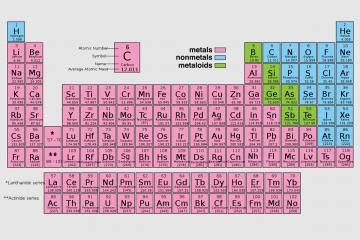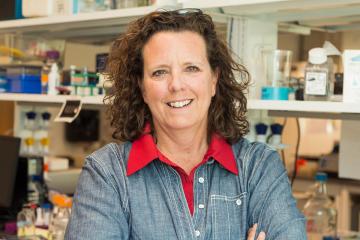Department of Chemistry and Physics
In the Department of Chemistry & Physics we educate students to become research-empowered, global citizens, with the skills and experience to thrive in their careers.
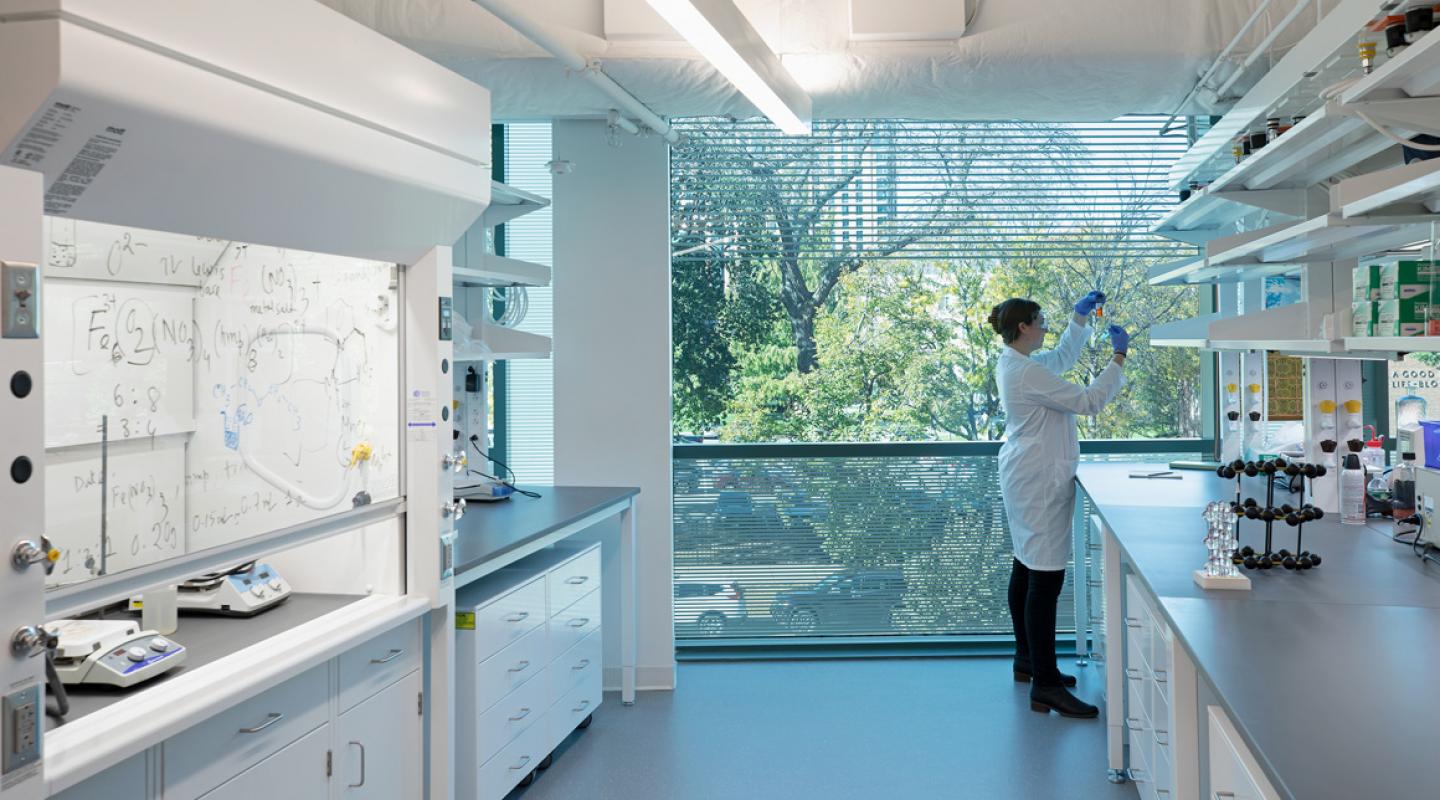
Studying Chemistry & Physics at Simmons University
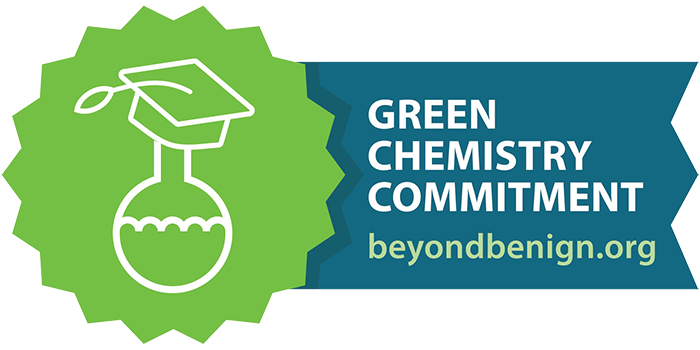 Our research-focused curriculum emphasizes hands-on preparation, starting freshman year, while courses and labs foster competence, teamwork, problem-solving, and interdisciplinary collaboration, in a women-centered learning environment.
Our research-focused curriculum emphasizes hands-on preparation, starting freshman year, while courses and labs foster competence, teamwork, problem-solving, and interdisciplinary collaboration, in a women-centered learning environment.
As a small, teaching-focused university, we offer students extensive contact with modern equipment and abundant research opportunities. Our location in one of the world’s highest-density scientific centers, and our department’s strong reputation creates excellent training and internship opportunities.
Our department is at the forefront of “green chemistry,” and is known for innovative approaches in science education. As part of Simmons University, we are proud to continue its historic mission in women-centered education and leadership, and to embody Simmons’ vision of “transformative learning that links passion with lifelong purpose.”
Highlights of Chemistry & Physics at Simmons
- Simmons is a nationally recognized leader in green chemistry, focused on reducing or eliminating hazardous substances in favor of safer, less wasteful alternatives.
- Our faculty are known for their contributions to 21st century science education.
- Students have published with faculty in leading publications such as Nature and Science, and present at regional and national conferences.
- Graduates are pursuing many exciting career and educational paths. In a recent survey, 30% of respondents held industrial or clinical research positions, 34% had completed or were enrolled in medical or professional schools, and 16% were completing doctorates.
At Simmons we have more graduates in chemistry, biochemistry, and physics majors than students who declare those majors at the beginning, which is the opposite of what one sees at most institutions.
- Rich Gurney, Professor of Chemistry & Physics and Department Chair
A research-centered curriculum to empower future scientists
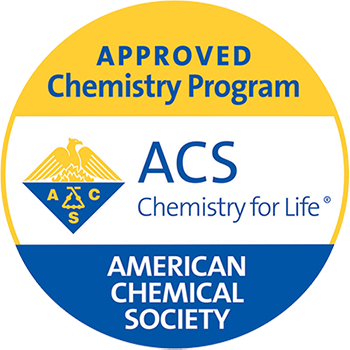 Simmons is making major investments in our campus to provide students with optimized spaces for interdisciplinary teaching, research, and collaborative learning in the sciences.
Simmons is making major investments in our campus to provide students with optimized spaces for interdisciplinary teaching, research, and collaborative learning in the sciences.- Research experiences include the Build-Your-Science-Toolkit Program, Simmons Mentored Assistantships in Research Training, and senior capstone projects. Student research at Simmons reflects a high level of innovative, independent work and intellectual rigor unusual for undergraduate programs.
- In the Engineering 3+2 dual-degree program, students complete 3 years at Simmons, followed by two at Columbia University or at Washington University, St. Louis, to earn a B.S. from Simmons and a B.S. in engineering from Columbia University or at Washington University, St. Louis, respectively.
- Recent internship sites include Novartis Institute of Biomedical Research, Broad Institute, Harvard Institutes of Medicine, and Warner-Babcock Institute for Green Chemistry, as well as internships and fellowships at Harvard, MIT, and CalTech.
- Undergraduates help maintain all research instruments and serve as Instrumental Teaching Assistants to underclass women.
Careers
Our graduates are in high demand with employers, and are regularly accepted into competitive graduate and research positions, including Cornell, Boston University School of Medicine, and the Broad Institute (Harvard/MIT). Alumni careers include: head of a federal laboratory, Navy flight surgeon, police forensic chemist, and director of an international biotech research institute.
Chemistry and Physics Faculty and Staff
Our full-time faculty are distinguished for their teaching, mentoring, and innovative research. Faculty research includes: electron and scanning probe microscopy, organic photovoltaics; signal processing, analysis and simulation, ultrasound; environmental analytical chemistry; ultrasound for biomedical imaging, sensing, and therapy; systems and synthetic biology approaches in viral biology; organic synthesis and methodology, green polymer chemistry, asymmetric synthesis; organic materials and spectral interpretation, green chemistry, bioinspired polymeric materials; genome engineering, science of teaching and learning, healthcare management in public-private partnerships; nanochemistry, molecular imaging for early detection and targeted drug-delivery; biophysics, biomedical engineering, nanotechnology, and neuroscience; semiconductor photocatalysis, inorganic and hydrothermal syntheses, reaction kinetics.
Chair

Rich Gurney
Professor and Chair of the Chemistry and Physics Department
Full-time Faculty

Shreya Bhattacharyya
Associate Teaching Professor, STEMM Education Program Director, and Clare Boothe Luce Professor

Joe Elias
Assistant Professor

Meghan Johnston
Associate Teaching Professor and Lab Instrument Manager

Michael Paul
Associate Teaching Professor

Cherie Ramirez
Associate Teaching Professor
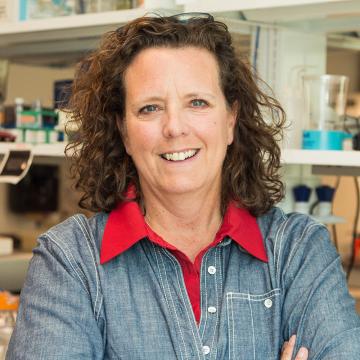
Jennifer Roecklein-Canfield
Professor

Arpita Saha
Professor

Jason White
Professor and Director of the Dual Degree Engineering Program
Staff
Megan Rahal
DREAM_ Administrative Assistant

Jen Stallings
Chemistry Laboratory Manager
Chemistry & Physics in the News
Contact Us
Department of Chemistry and Physics
In the Department of Chemistry & Physics we educate students to become research-empowered, global citizens, with the skills and experience to thrive in their careers.
Visit Simmons
What type of student are you?
Apply to Simmons
What type of student are you?
Request Info
What type of student are you?





